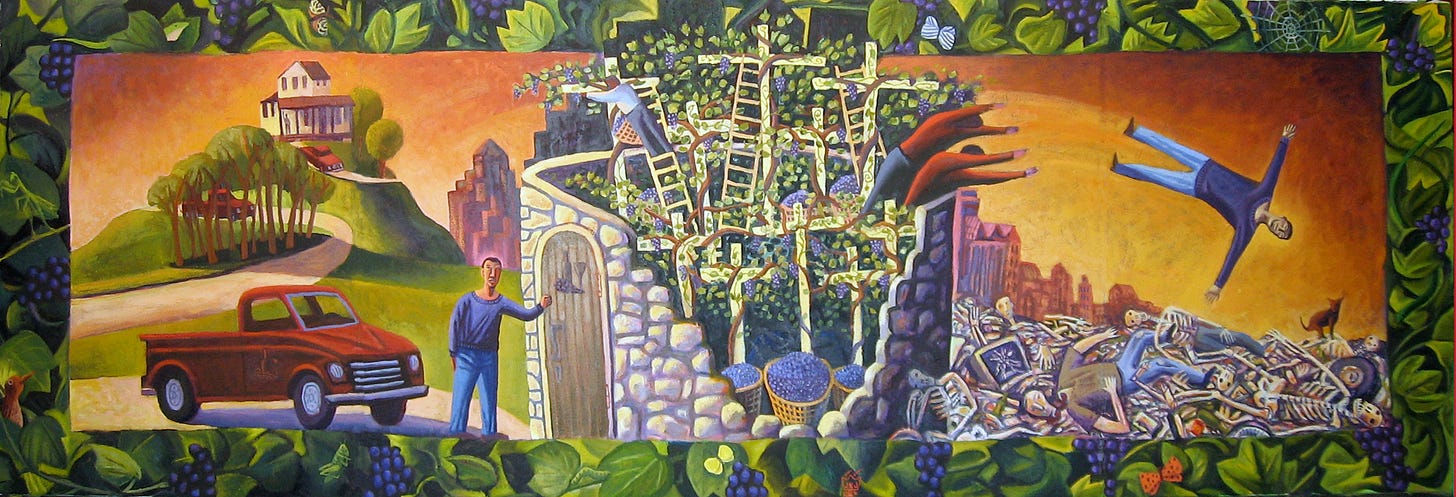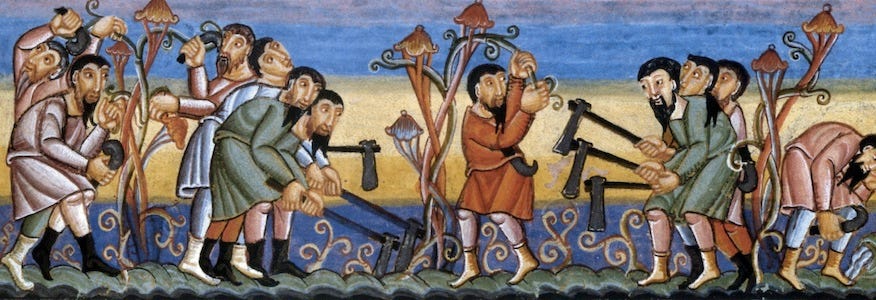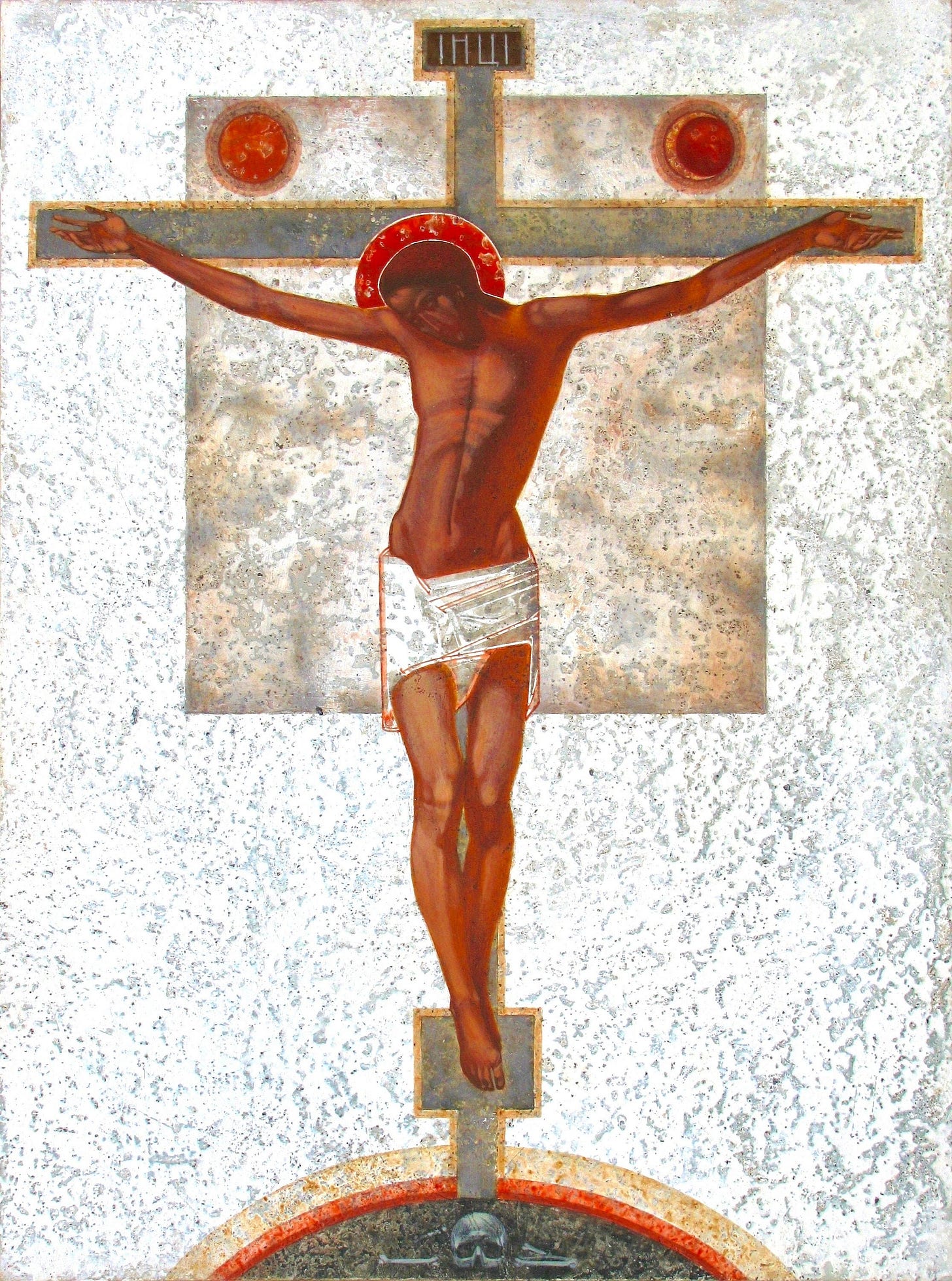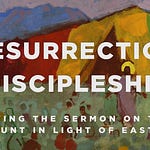“By what authority are you doing these things, and who gave you this authority?”[i]
“By what authority are you doing these things, and who gave you this authority?”[i]
Jesus is still responding to the question the Chief Priests and Elders of the Temple posed to him. You will remember from Sunday School that this Temple confrontation comes after Jesus paraded into Jerusalem on the back of a borrowed burrow and then proceeded to cleanse the Temple. The authorities of the Temple had enough. This backwoods rabbi, in their mind, had gone too far.
Jesus begins with a parable about Two Sons. We won’t relitigate that parable, but you’ll remember that in the parable, Jesus told the Chief Priests and Elders that tax collectors and prostitutes would enter the Kingdom of Heaven and get past St. Peter’s pearly gates ahead of them. Jesus told them that faith is more than religious acts in holy places. Faith in the Kingdom of God changes us, causing us to repent and turn away from our sinful ways and toward God. To know who God is, to follow Jesus, requires a change of heart.
So, Jesus tells another parable saying the Kingdom of Heaven is like a vineyard. The vineyard owner built the finest vineyard. A fence surrounded the property, with a watchtower at the center, and the finest grapes on the vine.. The owner then leaves town for a bit and rents the vineyard to some tenants.
The tenants enjoyed the vineyard for years, free of charge. The tenants forgot, though, that this vineyard was not theirs. The fence, the watchtower, the grapes, and the wine produced were not theirs. The tenants enjoyed the vineyard’s fruit until the day the owner sends someone to collect the rent.
When the rent collector arrives, the tenants forget that they are just that, tenants. They beat the owner’s representative, so the owner had to send another set of servants to collect what was owed. The rent is past due, and it is time to pay up. The tenants beat the second set of servants sent by the vineyard owner.
The vineyard owner is at their wit’s end. The vineyard owner sent their son. Surely, the tenants will listen to the owner’s son and pay up. The renters kill the son. “When the vineyard owner comes,” Jesus says, “what will he do to those tenants?”[ii]
The Priests and Elders say that when the vineyard owner gets news of what has happened, they will “put those wretches to a miserable death and lease the vineyard to other tenants who will give him the produce at the harvest time.”[iii]
Again, Jesus says the Kingdom of God is wrapped up in that mess.
Whenever we think of the coming of the Lord, complete with God’s judgment, we tend to go to a dark place. We think of hell, fire, and brimstone. We fear the coming of the Lord, knowing that we are wretches and this is why whenever an angel of the Lord appears in the New Testament, their first words are, “Do not be afraid.”
An angel to Zachariah, “Do not be afraid, Zechariah, for your prayer has been heard. Your wife Elizabeth will bear you a son, and you will name him John.”[iv]
An angel to Mary, “Do not be afraid, Mary, for you have found favor with God.”[v]
“Joseph, son of David, do not be afraid to take Mary as your wife, for the child conceived in her is from the Holy Spirit,”[vi] said an angel of the Lord.
For all of the “Alleluias” and hymns of praise that we sing, the gospels agree that when the Lord returns, our first posture will be one of fear. Why is that? We all know we are never as good as we make ourselves out to be in our minds. I don’t want to be judged by you any more than you want to be judged by me. Heck, one of the most accurate critiques of the church is that we are too judgmental. We do not want the world to judge us, and we worry about what parts of ourselves will be exposed when we are judged.
We’ve read the stories. We have the benefit of knowing what happened and what will happen. We know that just after Jesus’s temple confrontation with the Priests and Elders, he was beaten, killed, and raised on the third day. We know the first sign of his Messiah-ness was at a wedding in Cana and that just before he died, he prayed for forgiveness for those who were killing him.
We know Jesus preached the good news of God’s unmerited grace, and still, we respond to this with fear. Why is that?
Jesus’ parables serve as a window through which we can see the world outside of ourselves, and yet, we can catch a glimpse of ourselves in the glass.
The “Parable of the Wicked Tenants” is considered a parable of God’s judgment because the tenants took ownership of that which did not belong to them. In the same way, Jesus was confronting the Priest and Elders of the temple and, Christ is confronting the Church today. They, we, take ownership of what does not belong to us.
Jesus was asked, “By what authority are you doing these things, and who gave you this authority?”[vii] and the same can be asked of us. “By what authority are we doing what we are doing?”
In the church, it can feel as though we must do everything on our own.
We are making disciples of Jesus in our image.
We must fill the church, often thinking the metrics we track say more about us than the ways God is at work in our community.
We must ensure that no one misses out on the grace of God.
We must make sure they straighten up and fly right.
We must do this or that so that Jesus can be who Jesus is.
When making decisions for the church, how often do we ask, “What does God want from us? What would Jesus really do in this situation?” Because from my experience and the nodding of your heads, I can tell you that the Church rarely asks those questions when making decisions, or when we do we make sure what God wants matches what we’ve already decided.
Many have outright rejected Jesus because the Church has failed to ask those questions, opting for questions like “What does the Board believe?” “What would look best on social media?” or “What does the bishop want us to do?”
The title of Christian serves, at times, as a way to insulate us from the ways the Church behaves like the temple authorities. Using this parable as a window through which we can see the world, like the Priests and Elders, our job is to recognize ourselves.
Because the temple did not belong to the Elders and Priests in the same way the church does not belong to us, this parable of judgment turns into a parable of grace, and we no longer have reason to fear. When we ask ourselves, “By whose authority is our Sunday morning commotion being done?” and in the answer, we realize that church is on loan to us, we are stepping out from under the weight and guilt of judgment and expectations, and into grace.
None of us can keep this church going. I cannot do it, nor can you. Walker Chapel, like every other church, is God’s. This is God’s church and God’s service. We are God’s people. This is where financial stewardship becomes important, as we are not only a part of the mission of Walker Chapel. What we do here in worship, discipleship, and mission is part of God’s larger work in making all of creation new, which places us in ministry alongside the saints that sustain the church today while also laying the groundwork for the saints that God will work through in the years to come.
Still, we cannot sidestep judgment. We cannot escape that Jesus says he will return. The Priests and Elders say a “miserable death is coming” which can leave us fearful of what is to come. But (and it’s a big but so you know it does not lie) a few chapters later God raises the Son, the second person of the Trinity, buried outside the walls of Jerusalem.
God's amazing grace is a stumbling block to those who insist that their best behavior and good works are more important than trusting God’s forgiveness. God offers grace and forgiveness, and we insist we want law. What scares me the most about this parable of judgment is that we are, that I am, slow to learn and believe that all God has ever wanted was for us to believe.
What happened on the cross and in Christ’s tomb is the cornerstone upon which God’s new creation began. All that is left to do now to escape the judgment of the vineyard owner is to trust that through Jesus Christ, through the Son who gave himself up for all of creation, you, we have already escaped it. The Good News is that the rent has been paid, in total, on our behalf by the Son.
[i] Matthew 21:23, NRSV
[ii] Matthew 21:40, NRSV
[iii] Matthew 21:41, NRSV
[iv] Luke 1:13, NRSV
[v] Luke 1:30, NRSV
[vi] Matthew 1:20, NRSV
[vii] Matthew 21:23, NRSV


















Share this post